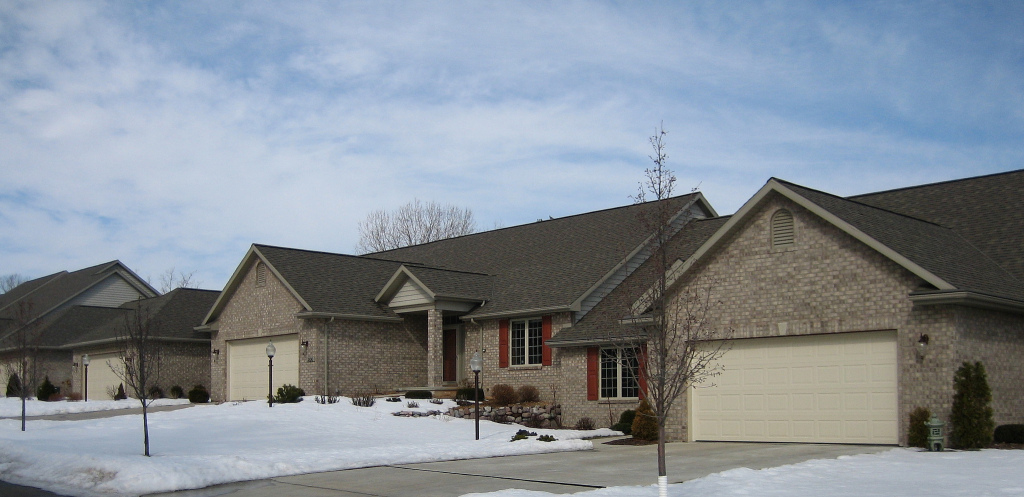
Reader Question: My mother owns (or owned) one unit of a two-unit duplex condominium. The two units shared one lot but never created a condominium ownership agreement. My mother was the original owner; the other unit has sold four times. During the recent sale, the buyer requested the single lot be broken into two separate lots to obtain financing. The ‘common wall’ dividing the two units created two properties.
Issues with lawn care and general maintenance have since come up with the new neighbor. My mom compounded the problems by building a fence on the new lot line without consulting the neighbor.
What is your understanding of mortgage rules for a two-unit condominium? Is it common to have the two-units separated? Is the separate land ownership superior to the condominium? Thanks for your comments. Martin G.
Monty’s Answer: There are different concepts that serve to increase density in neighborhoods or cities when there is a shortage of land, expensive land or high market demand. Zero lot line, condominium and cooperatives all offer unit ownership interests, but the structure of the ownership interests of each are different. The common thread in these developments is legally defined rules that spell out common areas, which party is responsible for which tasks and the ownership structure. The property is managed through a body of elected unit owners, known as a homeowner association(HOA). It is the existence of the legally recorded documents that create the entity. Without a legal entity, you do not have a condominium.
Condo gone wild
There are no mortgage rules regarding the situation you describe. Until a recording of the proper documents many lenders will not lend against this collateral. It is interesting to learn the buyer of the other unit was able to find a lender.
From your description, it appears the unit buyer utilized the zero lot line concept to secure the loan. With no rulebook, it is no wonder that misunderstandings develop. What will happen when one of the unit owners has a leaky roof that needs replacement, and the other unit owner’s roof is not leaking? Your mother’s current situation is a testament to why lenders are leery. Until a set of rules is established, and agreement on common areas and expense sharing is in place, the chances of continued disagreements are relatively high.
Without rules, the current arrangement pits neighbor against neighbor. If you are seeking to fix this situation for your mother, consider sharing this letter with your mother and the other unit owner to start a conversation about establishing a condominium. Is it possible the lack of rules contributed to the past turnover of the neighboring unit?
Economies of scale
A secondary issue is the lack of “scale” in a two unit building. For example, consider a large group of people paying to have one common lawn mowed. With only two unit owners, the savings over a single family home on this expense has little impact. With no rules, whether or not it is a zero lot line or a condominium plat, the potential headaches far outweigh the benefits.
“After further review..”
First, determine what the market value of the entire building (not the individual units) is worth if sold as one building. Determining value using this method will allow you to compare the financial difference between the value of a single building and the two individual units. Comparable sales (like the unit next door) to your mother’s unit should not be difficult to find. If the new neighbor who required a mortgage still has the appraisal, it will have recent comparable sales information. If the building has a greater value as one, the two unit owners may want to consider undoing the lot division, forego establishing the condo declaration and co-owning a duplex.
If the individual units are valued higher than one building, proceeding with establishing the condominium makes financial sense. Either choice provides good reason for your neighbor to cooperate as established rules in a partnership or a condominium association benefits the value of his ownership interests. There are other options available to consider if either owner would like more options.
Good legal assistance will be important to help guide both parties through all the options and each process. A real estate attorney can review the title documents, discuss the pros and cons of each scenario so you can decide a course of action, and, document the process.
